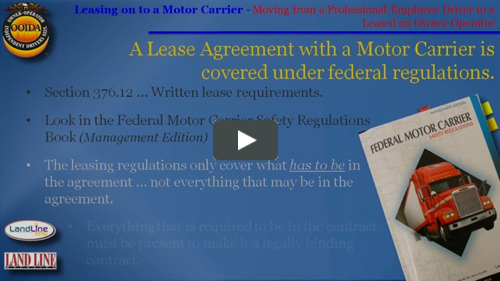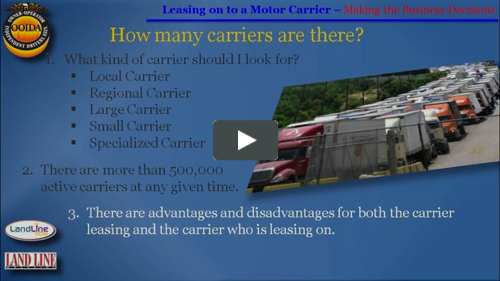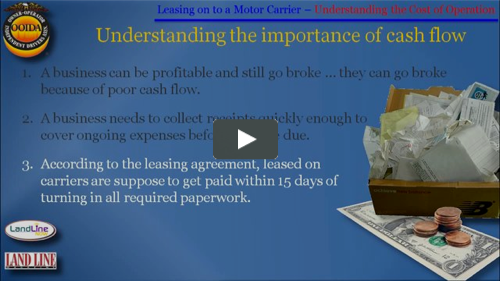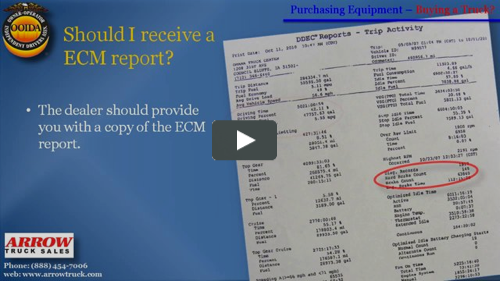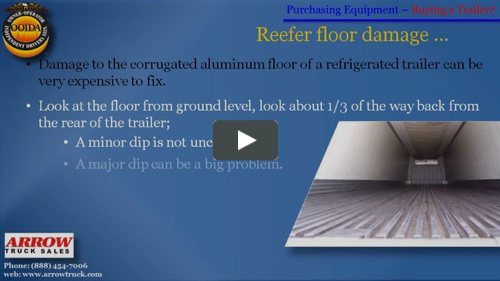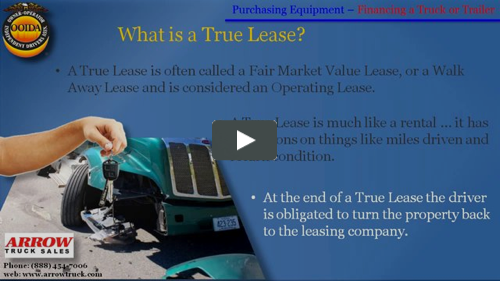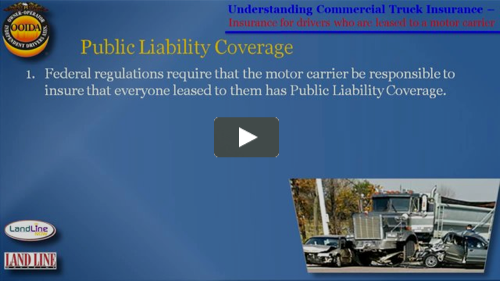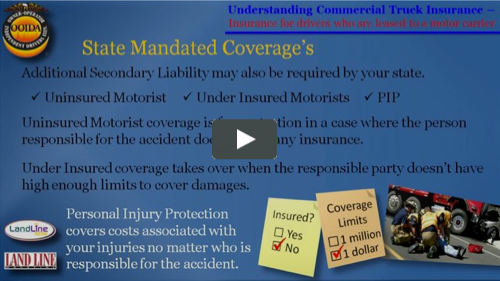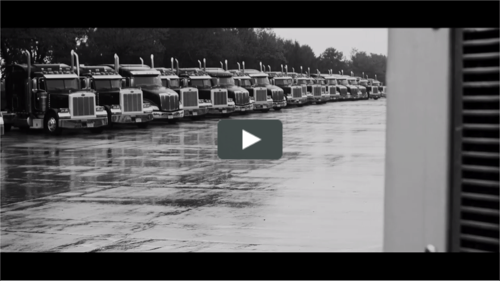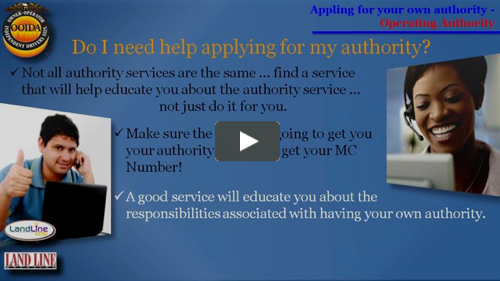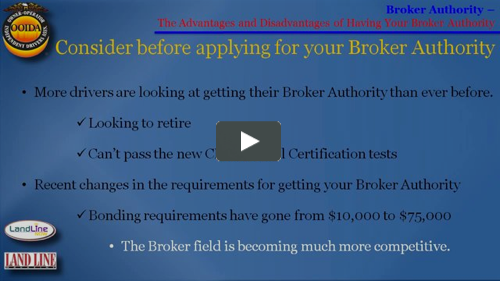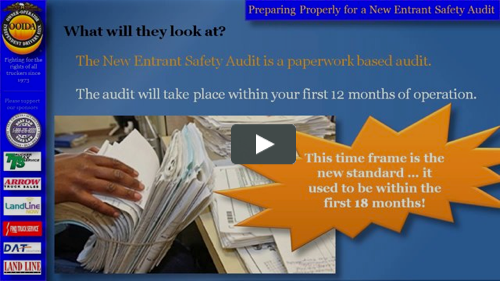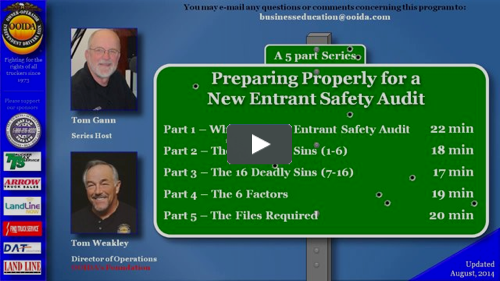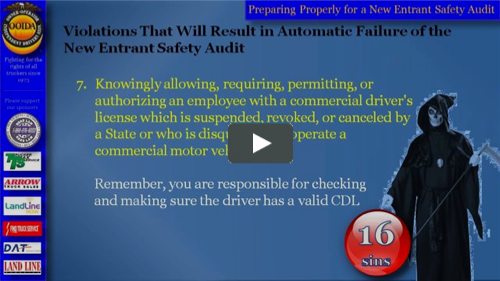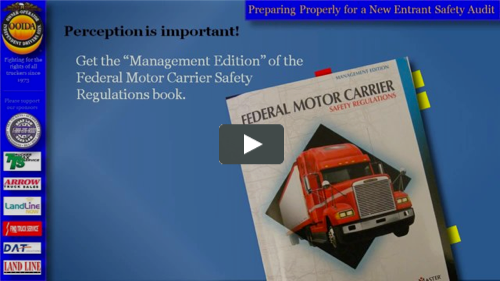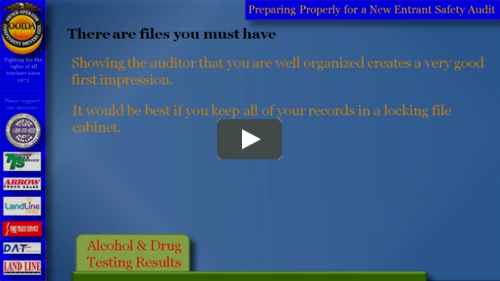Sponsored by:


|
1. Owner-Operator
|

|
2. Fleet Owner
|

|
3. Trucking Company Owner
|
|
1. Do Your Research
|
|
2. Make the Decision
|
|
3. Choose Your Carrier
|
|
4. Purchase Your Equipment
|
|
5. Get Your Insurance
|
|
For those who want to become a Trucking Company Owner or an Owner-Operator with their own authority. |
|
6. Apply for Your Authority
|
|
7. Pass the New Entrant Safety Audit
|
For more information on any one of these steps, we encourage you watch the modules
posted below or visit
http://www.ooida.com/EducationTools/ to learn more.
FASTPORT would like to thank
 for
providing this valuable content for our military veterans to ensure they are fully
prepared to become an Owner-Operator in the trucking industry.
for
providing this valuable content for our military veterans to ensure they are fully
prepared to become an Owner-Operator in the trucking industry.
